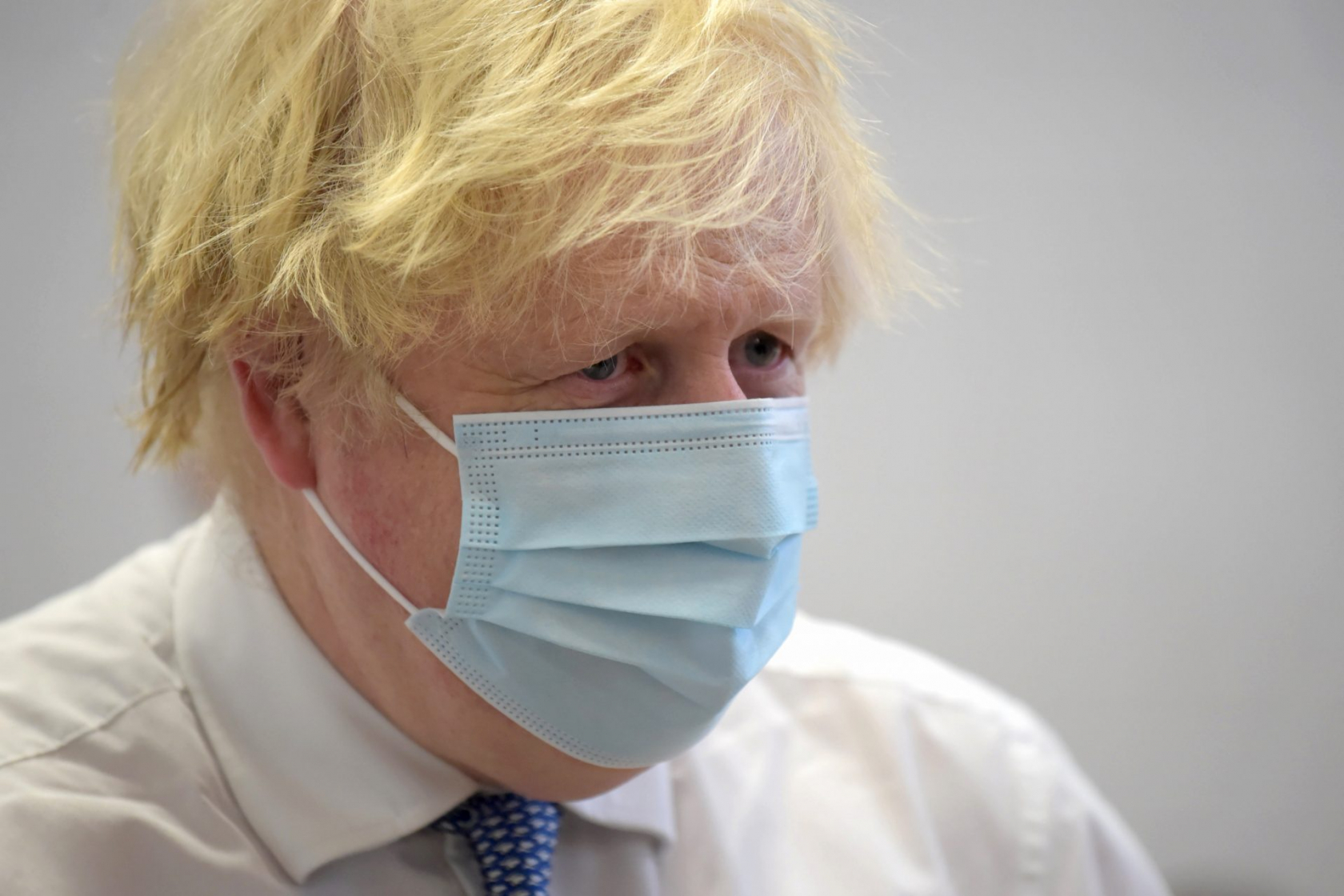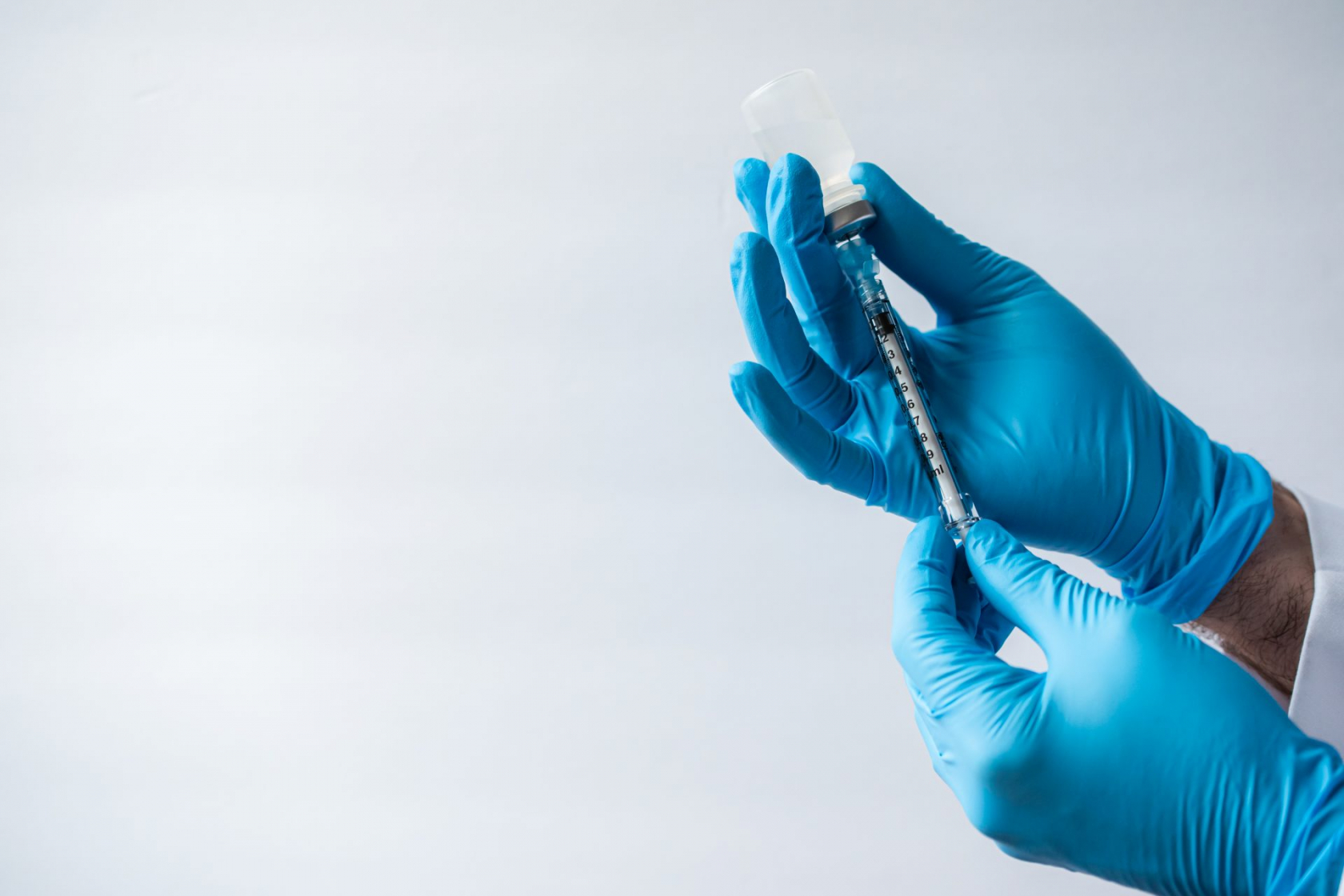As panic about the Omicron variant rises across the UK, here are the facts you need to know

What is the Omicron variant? And are the current vaccines effective at stopping it? Here’s everything you need to know.
Everything feels rather chaotic at the moment, doesn’t it? Less than a month since the Omicron variant was first identified in South Africa, its presence is certainly being felt here in the UK.
Right now, it feels like everyone knows at least one person who is either waiting for a PCR result or is on their way to get tested.
That is, of course, if they can get their hands on one – there’s been a lot of concern that supplies are running out after the government’s online booking portal showed that there were no tests available this morning (it’s since come back online).
And with new restrictions coming in and cases rising, it can be hard to know what to do or how to behave – especially when the messaging from the government tends to be so mixed.
So, to make things a little less stressful, we’ve put together this guide to everything you actually need to know in order to navigate the next couple of weeks. You’ve got this.
What is Omicron?
The Omicron variant is a mutated version of the original Covid-19 virus, which was first identified in South Africa on 24 November. By 26 November, the World Health Organisation (WHO) had designated the variant – also known as B.1.1.529 – as a “variant of concern,” due to its highly mutated nature.
The first known cases of Omicron in the UK were reported on 27 November, when two people with links to travel in southern Africa tested positive in England. At the end of November, there were 22 cases in England and Scotland – cases have continued to rise since then.
The Omicron variant is the fifth variant to be designated a “variant of concern” by the WHO – previous variants of concern include Alpha, which was colloquially known as the ‘Kent variant’, and Delta, which remains the most dominant variant in the UK for the time being.
However, current reports suggest that the Omicron variant could become the most dominant variant in the UK “within days” as cases rise rapidly.
Why is it called Omicron?
In May this year, the WHO announced that it would use the letters of the Greek alphabet to identify key Covid-19 variants in order to make them “simple” and “easy to say”.
The naming system – which was chosen after consultation with experts – is designed to replace the variant’s scientific names in the media and public discussion.
In a statement, the WHO explained: “While they have advantages, these scientific names can be difficult to say and recall, and are prone to misreporting. As a result, people often resort to calling variants by the places where they are detected, which is stigmatizing and discriminatory.”
Omicron was named after the 15th letter in the Greek alphabet, even though it’s not the 15th variant to be identified.
This is for a number of reasons – not only have there been other, less concerning variants that have received Greek names (such as Lambda and Mu) but the WHO decided to skip some of the letters, such as Nu and Xi, primarily to avoid confusion with the English word ‘new’ and the common surname Xi.
Is Omicron more deadly than previous variants?
Scientists across the world are working hard to understand the severity of the threat Omicron might present. Initial reports from South Africa suggest that while the Omicron variant seems to spread faster than previous variants, it may cause less serious illness.
However, scientists have warned against placing too much stock in these early reports – the variant was discovered less than a month ago, and more extensive research is needed to understand the full extent of what’s going on and get definitive data.
Speaking during a visit to a vaccination clinic in west London yesterday, Prime Minister Boris Johnson confirmed that at least one patient has been confirmed to have died with Omicron – and urged people not to get carried away with reports that the variant could cause milder illness.
“I think the idea that this is somehow a milder version of the virus, I think that’s something we need to set on one side and just recognise the sheer pace at which it accelerates through the population. So, the best thing we can do is all get our boosters.”
What are the symptoms of Omicron?
The NHS website still asks anyone who is experiencing any of the three original Covid-19 symptoms – a high temperature, new, continuous cough or a loss or change to your sense of smell or taste – to get a PCR test, and the WHO says there is currently no information to suggest that the symptoms associated with Omicron are any different.
However, Dr Angelique Coetzee, the South African doctor who first alerted authorities to the presence of the Omicron variant, says the patients she’s seen are experiencing different symptoms to those traditionally associated with Covid-19.
She told the AFP that the patients she had seen were experiencing symptoms including fatigue, a scratchy throat, mild headache and body aches.
At a briefing held by South Africa’s Department of Health, GP Unben Pillay revealed that patients are also experiencing night sweats – aka, when you sweat so much your night clothes and bedding are soaking wet – as well as dry coughs, fever, fatigue and “a lot of body pains”.
How many cases of Omicron are there in the UK?
The UK reported 1,576 new cases of the Omicron variant yesterday (Monday 13 December), taking the total to 4,713. It’s an increase of 337 cases on the day before, when 1,239 new cases were reported.
However, an estimate from the UK’s Health Security Agency (UKHSA), which is responsible for protecting the UK from infectious diseases and other threats to public health, suggested that new Omicron infections in the UK could actually have been running at 200,000 a day on Monday.
Are vaccines effective against Omicron?
The short answer? Kind of. Research is still ongoing, but lab studies have indicated that the neutralising antibodies you get after two doses of a Covid-19 vaccine – aka, those which stop the virus from invading your cells in the first place – are far less effective against Omicron than they are against the Delta variant.
This doesn’t mean that the vaccine won’t provide some protection – early studies also suggest that they still greatly reduce the risk of someone becoming seriously ill and needing hospitalisation – but that booster vaccines will be necessary in order to provide a good amount of protection.
Indeed, data released on Friday (10 December) indicated that protection against Omicron was boosted up to over 70% after a third dose of the vaccine.
“These early estimates should be treated with caution but they indicate that a few months after the second jab, there is a greater risk of catching the Omicron variant compared to Delta strain,” Dr Mary Ramsay, head of immunisation at the UKHSA, told Reuters.
“The data suggest this risk is significantly reduced following a booster vaccine, so I urge everyone to take up their booster when eligible.”
Images: Getty
Source: Read Full Article


